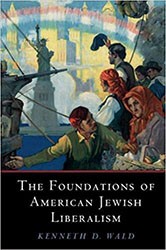What does it mean to love God? Jon Levenson shows that love goes far beyond romance and passion, affection and caring — the qualities that might first come to mind. As in any serious relationship, he argues, it likewise entails loyalty, trust, obligations, and sacrifice.
Levenson, a legendary teacher at Harvard, established himself as both a brilliant scholar and an original thinker almost 30 years ago with Creation and the Persistence of Evil. That landmark work, like this one, bases an original thesis on a close reading of documentary sources from the ancient to the nearly contemporary. He builds on some of the same concepts in both works. Levenson cites ancient Near Eastern treaties of suzerainty as models for the covenant between God and Israel and contrasts Maimonides’ thought with Aristotle’s idea of a perfect God who is “eternal, separate, unalterable.”
The earlier book looks at the covenant as the ground on which obedience and free choice contend. Here he explores the relationship it creates, which he compares to a son’s feelings toward his father: forever loyal, ready to help, grateful. That comparison comes directly from the language of the time and place where the Jewish people came into existence.
As early as the fourteenth century BCE, Levenson tells us, the king of Byblos (in modern-day Lebanon) seeks help from the Egyptian pharaoh by asking rhetorically, “Who will love [you] if I die?” In the seventh century BCE the Assyrian king Assurbanipal required his vassals to swear, “we will love the king of Assyria.” In both instances the vassal king speaks to his suzerain as if to a parent. This is neither a poetic metaphor nor an emotional feeling. It describes the roles and obligations that a family relationship entails. So, when King Ahaz of Judah asks for protection by Assyria against military threats, he writes to Tiglath-pileser III, “I am your son; deliver me from the king of Aram and the king of Israel who are attacking me.” When Jews are commanded to “love the Lord your God,” they are also being reminded of their obligations to a greater power who has saved them from their enemies.
There is certainly an emotional component as well. Love, according to Levenson, includes feelings of gratitude for God’s gift in choosing to have a relationship with the people Israel, and a sense of humility in the face of the declaration in Leviticus: “I will be your God and you will be my people.” That relationship also demands Israel’s faithfulness and explains God’s possessiveness. These themes, so often raised by the Prophets, are familiar to us as well in the political alliances and intimate relationships of our own time. Levenson helps us see them in God’s love as well.
Love between human beings can also be sexual, of course, and the love of God can be just as intense. When the people Israel pay attention to other gods, the Prophets accuse them of “whoring.” The Song of Songs celebrates sexual love and passion: “Love is as fierce as death, Passion is mighty as Sheol. Its darts are darts of fire[…] Vast floods cannot quench love.” This inspires the midrash to read Song of Songs as an account of God’s proposal of marriage to Israel on Sinai — consummated, no less, in the Tabernacle.
Writings after the age of the Bible talk about encounters with God in more mystical or philosophical terms. Levenson takes pains to point out that medieval Jewish ideas depend on the influence of Christian, Muslim, and Greco-Roman thought. His example par excellence is Bahya ibn Paquda’s Duties of the Heart, which drew upon Neoplatonism and Sufism. It teaches that God’s love is felt through his creation and is earned through dedication, worship, prescribed practices, and self-sacrifice. Maimonides, a century later, is more philosophically inclined, and sees inquiry and wisdom as essential.
The Love of God concludes with a chapter that looks at the post-Enlightenment religious condition through two great twentieth-century figures, Martin Buber and Franz Rosenzweig. With the erosion of the authority of God’s commandments, how can Jews have a relationship with God? Buber envisions a deeply personal (I and Thou) dimension where authenticity is essential — which means that the individual chooses when to accept a law and when not to. Rosenzweig, by contrast, see God’s love as so transformative that human beings can respond only with a heartfelt “Yes!” when God commands, “Love me.” For Rosenzweig, Torah and commandments are the medium for giving and receiving God’s love.
Jon Levenson’s explication of these ideas is a miracle of organization, precision, and clarity. He writes accessibly and conversationally, belying his immense scholarship. The Love of God can be read for its original point of view, as a history of ideas, or as a way of finding new meaning in familiar ways of talking about God. It succeeds brilliantly on all counts.
For the observant Jew, Levenson does something more: he revivifies Jewish prayer, ritual, and other commandments by explaining them in terms of radical gratitude for the gifts of a loving God. It may sound simple, but it is a profound insight, and another reason this book’s influence will be felt for decades to come.
Related Content:
- Julia Dahl: “Are You Jewish?”
- Interview with Yael Unterman
- Erica Brown: An Empty Mental Space
Bob Goldfarb is President Emeritus of Jewish Creativity International.





